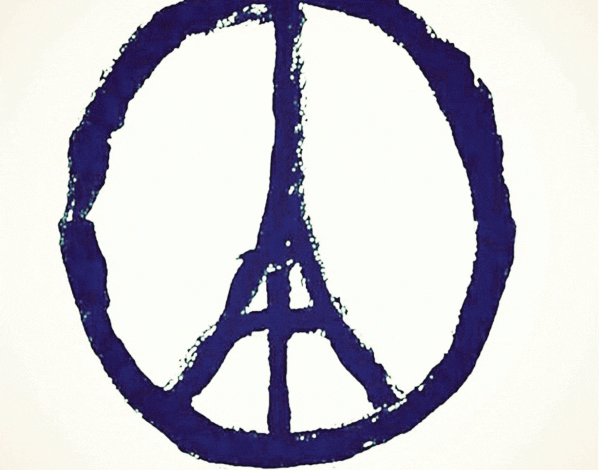
The Eiffel Tower artfully shaped into a peace sign. National monuments lit up with the colors of the French flag. Facebook users overlaying profile pictures with the Tricolore. A constant flood of posts, pictures, and tweets replete with #PrayForParis and #ParisAttacks.
That was the response to the terrorist attacks in the French capital that killed 129 and injured hundreds last Friday.
The response to a suicide bomber who killed at least 21 at a funeral in Iraq the same day and the twin suicide bombers who struck a Beirut suburb, killing at least 43 people, one day earlier was comparative silence.
Fiana Arbab, a junior at the University of Michigan-Dearborn and president of the campus organization The Social Justice League, heard about the Beirut attacks soon after they happened because many of her friends have strong connections to the area.
She said learning of the attacks in Paris was different.
“Immediately, social media was live,” Arbab said. “The French temporary profile pictures were popping up everywhere. Everyone was about ‘pray for Paris.’”
Arbab said many of her friends who are not vocal about social issues or current events were suddenly showing their support.
#PrayForParis was a trending topic, but did praying for Paris also become a trend?
Facebook did not roll out a flag overlay to represent other countries that had recently been ravaged by ISIS. Its Safety Check feature was not used to track users in Lebanon, Iraq, Turkey, Egypt or Kenya as it was in France.
In defending the activation of Safety Check in Paris, Facebook reported that 78 million people had 183 million interactions relating to the Paris attacks. Figures on Facebook activity about the bombings in Beirut were not announced.
However, reporters, bloggers and common people pointed out disparity in reactions to the events.
“We don’t get a safe button on Facebook,” Lebanese blogger Joey Ayoub wrote. “We don’t get late night statements from the most powerful men and women alive and millions of online users.”
Google Trends data shows that interest in the Beirut attacks was almost nonexistent while demand for information about the Paris attacks spiked soon after the shootings and explosions occurred.
Mario Ramadan, of Lebanon, was in Beirut and heading to the airport at the time of the attacks last Thursday.
Ramadan left Lebanon a few hours after the bombs detonated. He was following the events and by the time he reached his destination in London, the attacks in Paris had happened.
“I think the media did write down about Lebanon as much as it did write down about Paris,” Ramadan said. “The only issue was, however, that people got more attracted to the Paris issue than the Beirut one.”
Ramadan heard complaints from some in Lebanon that the world ignored the events there and empathized with those in France, though both were victims of terrorism.
But he said their stance was hypocritical.
“Few of those people who were nagging about Lebanon not being recognized take a look into Syria,” Ramadan said. “Every day there’s a bombing in Syria. Why don’t they think about that as well?”
Ramadan said those individuals view tragedies in Syria and Iraq the way the West views tragedies in Beirut — with less attention and concern than they give to events elsewhere.
“I think that change should start from us, ourselves as Lebanese,” Ramadan said. “If we want to be recognized as no different from other people, so should we recognize all people equally.”
Some, attempting to give attention to both Lebanese and French victims of ISIS attacks, shared a photo of the countries’ flags superimposed. As it turns out, they were sharing the French colonial flag of Lebanon — and a message they might not have intended.
Those actions were based on the principle of self-presentational needs, according to Karen North, a communication professor at the University of Southern California, who studies social media.
“People are motivated to control and craft their public persona,” North told The Washington Post in an email. “These events offer an opportunity to present themselves as ‘good people’ and/or people who are knowledgeable.”
In a letter published by Elephant Journal, Jamie Khoo explained why she did not turn her Facebook photo blue, white and red. To her, the suffering in Paris and other cities became a social media gimmick.
She wrote, “I feel that just changing my photo, writing a few words and a hashtag on social media minimizes (even cheapens) the tremendous, horrific reality of what is going on all around the world, not just in Paris.”






Leave a Reply